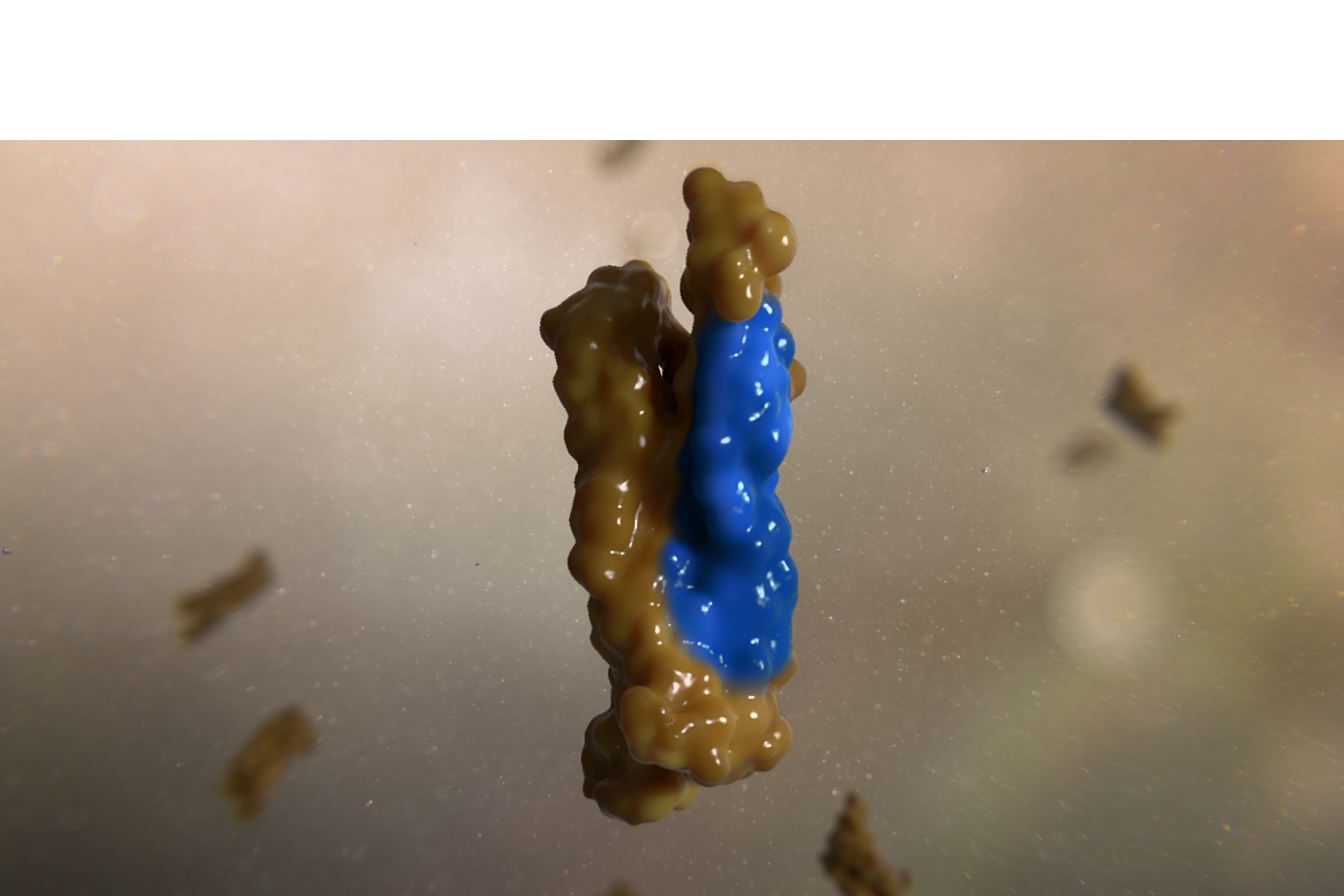
Cell Penetrating Alphabodies
Capitalizing on the vast universe of intracellular targets to generate multiple transformative cancer treatments
Cell Penetrating Alphabodies are transformative biotherapeutics created to address intracellular targets that are “undruggable” by existing therapeutics…
Complix has generated pre-clinical proof of concept data which demonstrate that CPABs can penetrate cancer cells and act on intracellular targets to induce a therapeutic effect.
Proof of concept data were produced with Mcl-1 as the target. Mcl-1 is an important regulator of cellular apoptosis, determining whether a cell survives or dies. The MCL-1 locus is one of the top 10 most amplified genomic regions in cancer, with increased expression/activity in a variety of cancers. Its overexpression prevents tumor cells from entering into the apoptosis phase and dying.
Anti-Mcl-1 CPABs were designed to block Mcl-1 therefore driving tumor cell death. In vitro and in vivo data showed that the CPABs are specifically acting on their target and that they effectively inhibit tumor growth.
Previous studies have also demonstrated that Complix can create CPABs that penetrate the nucleus of cancer cells and modulate the role of transcription factors. In December 2017, the Company received a grant from VLAIO to further expand its pipeline of proprietary CPABs against intracellular cancer targets based on the design of nucleus targeting CPABs.
Importantly, Complix researchers have recently obtained proof of concept that CPABs are efficiently taken up by cells of the immune system, and that they can modulate functional properties of certain subtypes of white blood cells. This opens the gate towards development of novel immuno-oncology therapies and new treatments for autoimmune disease.
CPABs have also been shown to cross the blood-brain barrier effectively and penetrate into neuronal cells in the brain. Complix is currently evaluating potential applications of its CPAB technology in the field of CNS diseases.


